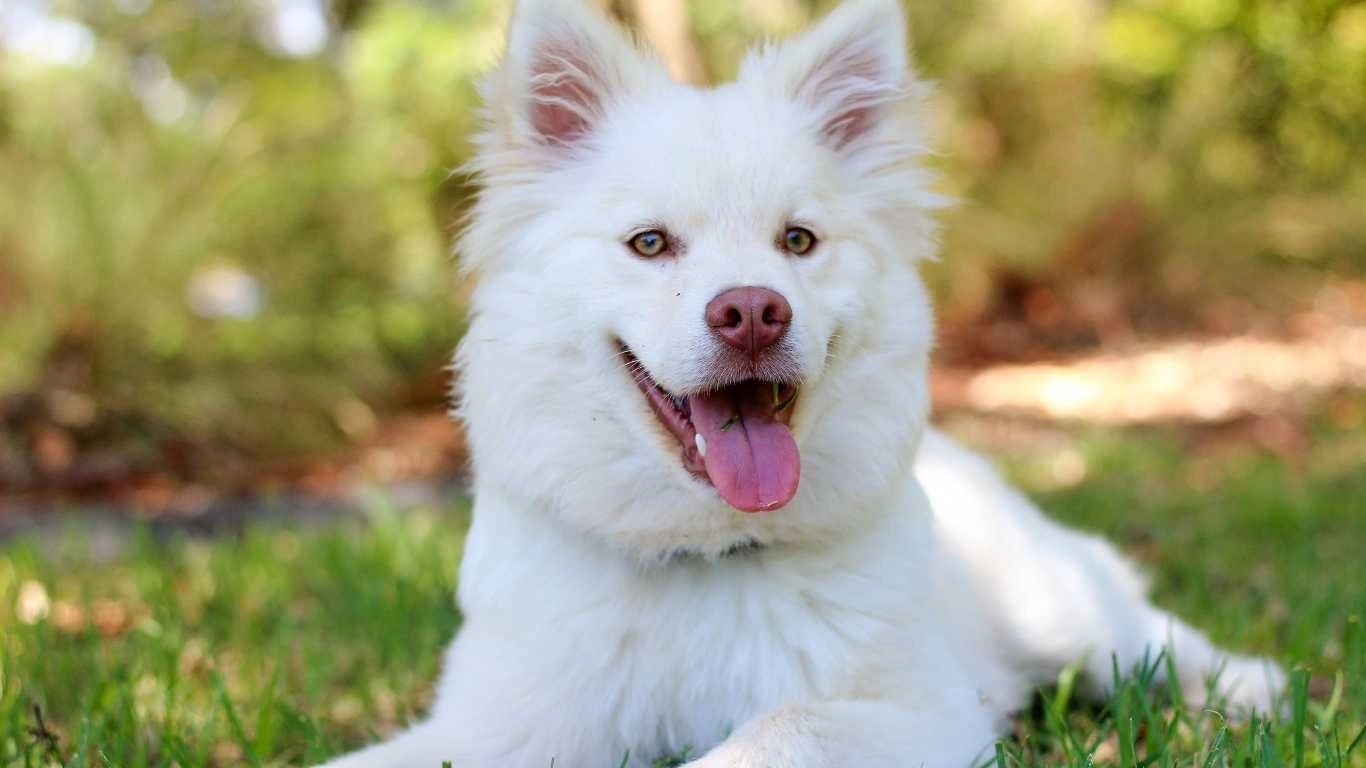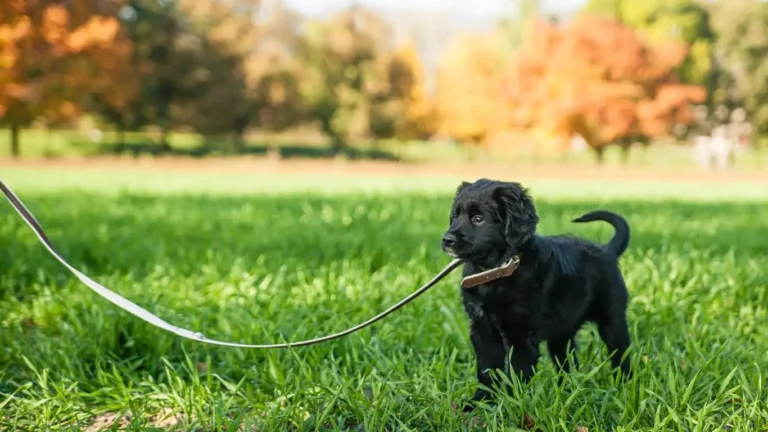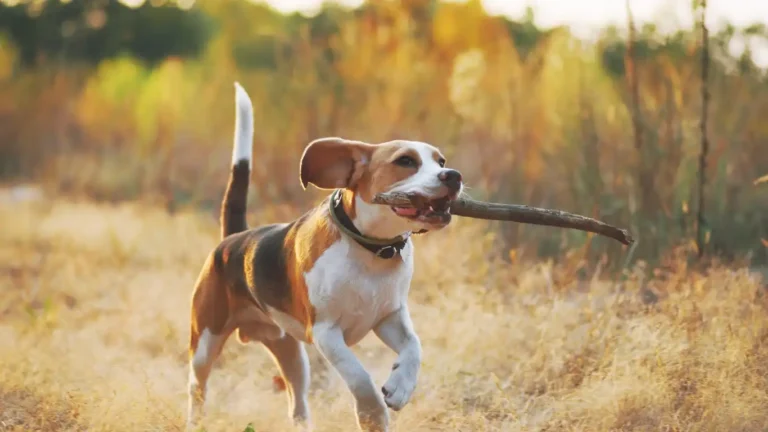Can Dogs Eat Sunflower Seeds Safely? Discover the Benefits and Risks
As an Animal Care Specialist working in pet clinics and shelters, I’ve seen a lot of pet owners ask questions about what they can and can’t share with their dogs in terms of human food. One of the most common questions I get revolves around sunflower seeds—specifically, “Can dogs eat sunflower seeds safely?” Sunflower seeds are a tasty, nutritious snack for humans, so it’s natural to wonder if they’re safe for our furry companions too. Let’s dive into this topic to give you the facts, backed by my professional experience and what I’ve learned over the years working closely with animals.
What Are Sunflower Seeds and Their Benefits for Humans?
Before we get into whether dogs can enjoy sunflower seeds, let’s take a quick look at what sunflower seeds actually are and why people love them. These small, oval-shaped seeds come from the sunflower plant, which is native to North America. They’re packed with healthy fats, protein, fiber, and important vitamins and minerals like vitamin E, magnesium, and selenium. They are also rich in antioxidants and are often consumed as a snack, added to salads, or blended into smoothies.
For us humans, sunflower seeds offer a range of health benefits. They support heart health, can help lower cholesterol, and contribute to better skin, among other things. They’re a go-to snack for many, especially those looking to improve their diet or get a quick energy boost during a busy day.

Can Dogs Eat Sunflower Seeds Safely?
Now, the big question: can dogs eat sunflower seeds safely? The short answer is: yes, they can, but with some important caveats. Sunflower seeds themselves aren’t toxic to dogs, but there are several things you need to keep in mind before sharing them with your pup. Let’s break down the dos and don’ts when it comes to feeding your dog sunflower seeds.
1. Are Sunflower Seeds Toxic to Dogs?
First, let’s clear up the misconception that sunflower seeds are dangerous for dogs. No, sunflower seeds are not toxic. In fact, many pet food brands include sunflower seeds as part of their ingredient list for their nutritional benefits. That said, there are certain precautions you need to take to ensure that your dog stays safe and healthy while enjoying them.
2. Are Sunflower Seeds Healthy for Dogs?
Sunflower seeds are packed with nutrients, many of which can be beneficial for dogs in moderation. For example, they contain healthy fats like omega-6 fatty acids, which can promote a shiny coat and support skin health. They also have protein, which is essential for muscle growth and repair, and fiber to help keep things running smoothly in your dog’s digestive system.
However, these benefits only come into play when sunflower seeds are fed appropriately. Too many seeds can lead to weight gain due to the high fat content, so moderation is key. Like with any treat, it’s important to balance the nutritional benefits of sunflower seeds with the overall needs of your dog’s diet.
What to Consider Before Giving Your Dog Sunflower Seeds
While sunflower seeds themselves aren’t dangerous, there are a few important factors to consider before sharing them with your dog. As a pet care professional, I can’t stress enough the importance of understanding these points to ensure your dog’s safety and health.
1. The Shells Are a No-Go
One of the most important things to remember is that sunflower seeds should always be given to your dog unshelled. The shells can be difficult for dogs to digest, and they can cause a blockage in the intestines or lead to other digestive issues. If your dog eats a lot of sunflower seed shells, they may experience stomach upset, or in extreme cases, even require a vet visit for removal.

2. Salted Seeds Are Not Safe
If you’ve ever reached for a bag of sunflower seeds, you’ll know that many of them are salted. While the occasional tiny sprinkle of salt won’t hurt us, dogs have a much lower tolerance for salt than humans. High levels of salt can lead to serious health problems for dogs, including dehydration, kidney issues, or even sodium poisoning. So, always opt for plain, unsalted sunflower seeds if you decide to share them with your dog.
3. Portion Control Is Key
As I mentioned earlier, sunflower seeds are high in fat, which is great in moderation but can lead to weight gain or pancreatitis if overfed. Depending on the size of your dog, a small handful of sunflower seeds can be a nice treat every now and then. However, you should never make sunflower seeds a regular part of your dog’s diet.
4. Be Mindful of Allergies
Just like humans, dogs can develop food allergies. While sunflower seeds aren’t a common allergen, it’s always a good idea to monitor your dog closely the first time you offer them sunflower seeds. Keep an eye out for signs of an allergic reaction, which can include itching, swelling, or gastrointestinal upset like vomiting or diarrhea.
How to Safely Serve Sunflower Seeds to Your Dog
If you’ve decided to give your dog sunflower seeds as an occasional treat, here are a few tips on how to do it safely:
- Start small: Always start with a very small amount to see how your dog reacts.
- Unshelled only: Make sure the seeds are unshelled to avoid digestive issues.
- Plain and simple: Stick to unsalted, unflavored seeds—no added seasonings or coatings.
- Moderation: Keep sunflower seeds as an occasional treat, not a daily snack.

Conclusion: Moderation is the Key to Sharing Sunflower Seeds with Dogs
While sunflower seeds are safe for dogs to eat, they need to be given with care. As long as you remove the shells, avoid salted varieties, and keep the portion size small, sunflower seeds can be a fun and healthy treat for your dog. Remember, when it comes to feeding dogs human food, moderation is key—this applies to sunflower seeds just as much as it does to anything else you may consider sharing with your pup.
Can Sunflower Seeds Help With Your Dog’s Health?
In my years of working in animal care, I’ve seen pet owners get really creative with their dog’s diets, often looking for ways to give their furry friends an extra boost of nutrition. Sunflower seeds, when offered in the right amounts, can contribute positively to a dog’s health, but of course, this comes with some caveats. Let’s break down some of the ways these little seeds can potentially benefit your dog and how to safely integrate them into their routine.
1. Healthy Fats for Skin and Coat Health
If you’ve ever seen a dog with a dull, dry coat, you know how frustrating it can be. One of the key benefits of sunflower seeds is their rich omega-6 fatty acid content. These healthy fats can help improve the quality of your dog’s skin and coat, making it shiny and soft. Omega-6 fatty acids also play a role in reducing inflammation in the body, which can help dogs with itchy or sensitive skin. As a pet care professional, I’ve often recommended sunflower seeds to dog owners who are trying to improve their dog’s coat, especially if they notice issues like dry skin or excessive shedding.
2. Protein to Support Muscle Health
Another benefit of sunflower seeds is their protein content. Protein is essential for maintaining and building muscle, and it’s especially important for active dogs or breeds that require a higher protein intake. While sunflower seeds shouldn’t be your dog’s primary source of protein (you should stick to high-quality dog food for that), they can serve as a tasty and healthy snack to complement their overall diet. Just keep in mind, it’s all about moderation. Too much protein from any source could upset your dog’s nutritional balance.

3. Fiber for Digestive Health
Another way sunflower seeds can benefit your dog is by supporting their digestive system. These little seeds are a great source of fiber, which can help with bowel regularity. If your dog is prone to constipation or if you’re trying to help them maintain a healthy weight, fiber is your best friend. It aids in digestion and can prevent the discomfort associated with irregular stools. That said, fiber needs to be introduced gradually to your dog’s diet—too much at once can lead to gas, bloating, or even diarrhea.
Are There Any Risks When Giving Dogs Sunflower Seeds?
As much as sunflower seeds can offer some great benefits, they aren’t without their risks. As a pet care specialist, I always encourage pet owners to be mindful of the possible downsides. Just like with any other food, there are a few things to watch out for when it comes to giving sunflower seeds to your dog.
1. Potential for Weight Gain
One of the biggest concerns with sunflower seeds is their fat content. While healthy fats are great for your dog’s skin, coat, and overall health, consuming too many sunflower seeds can quickly lead to weight gain. If your dog is eating sunflower seeds as a treat, make sure you’re factoring those extra calories into their overall daily intake. Dogs that aren’t getting enough exercise or are already on the heavier side could easily put on weight if they eat too many calorie-dense treats like sunflower seeds.
2. Salt Can Be Dangerous
As I mentioned in Part 1, salted sunflower seeds are a big no-no when it comes to feeding your dog. Salt is one of those things that can sneak into your pet’s diet in ways you might not always realize. Just a little bit of excess salt can lead to dehydration, kidney problems, or even sodium poisoning in dogs. If you happen to be eating sunflower seeds and want to share with your dog, always make sure they’re the unsalted variety. I’ve seen firsthand how many seemingly innocent treats, like salted nuts, can harm dogs if fed too often.

3. Allergic Reactions
While sunflower seeds are not common allergens, it’s always good practice to be cautious when introducing new foods to your dog. Allergies can develop at any time, even if your dog has been eating a particular food without issue in the past. The most common signs of an allergic reaction in dogs include itching, swelling, ear infections, or digestive issues like vomiting or diarrhea. If you notice any of these signs after your dog has eaten sunflower seeds, it’s best to stop offering them and consult your veterinarian for advice.
How to Safely Add Sunflower Seeds to Your Dog’s Diet
It’s great to hear you’re considering adding sunflower seeds to your dog’s diet! When done properly, they can provide some valuable nutrients. But as with any treat, the key is moderation and understanding how to safely serve them. Here are some practical tips based on my experience working with dogs and their health needs:
1. Start Slow
When introducing any new food to your dog’s diet, always start slow. Give your dog a small amount of sunflower seeds the first time, and watch for any signs of an upset stomach or allergic reaction. Start with just one or two seeds (unshelled and unsalted, of course) and gradually increase the amount over time if they seem to tolerate it well.
2. Chop or Grind the Seeds
If your dog is small or tends to gulp their food quickly, you may want to chop or grind the sunflower seeds before giving them. This will help prevent choking hazards and make it easier for your dog to digest. You can mix the ground seeds into their regular food or sprinkle them on top as a little bonus treat. I’ve found that many dogs love the extra crunch, so it can be a great way to spice up their regular meals!
3. Use Sunflower Seeds as a Training Reward
If you’re in the middle of training your dog, sunflower seeds can be a fantastic tool for positive reinforcement. I often recommend them as a training treat, especially for dogs that are food motivated. Since sunflower seeds are small, they’re perfect for quick, multiple rewards without overfeeding. Just be sure to limit the number of treats you use in a single training session, so you don’t accidentally overdo it on the calories.

4. Mix with Other Healthy Treats
Sunflower seeds can also be mixed with other healthy treats to create a well-rounded snack for your dog. If your dog enjoys a variety of treats, combining sunflower seeds with pieces of carrots, apple slices, or even a bit of plain popcorn can add variety and balance to their snack time. Just remember, the goal is to provide a mix of different nutrients, and sunflower seeds should only be a small part of the equation.
What Are the Best Alternatives to Sunflower Seeds for Dogs?
While sunflower seeds can offer some great benefits, they’re not the only option when it comes to healthy, dog-friendly treats. In fact, there are plenty of other snacks that might be even better suited to your dog’s specific needs, depending on their health, age, and activity level. Based on my experience, here’s a list of alternatives to sunflower seeds that are also nutritious and safe for your dog to enjoy in moderation.
1. Pumpkin Seeds
Another type of seed that is safe for dogs to consume is pumpkin seeds. They’re rich in zinc, iron, and magnesium, all of which are important for your dog’s immune system and overall health. Pumpkin seeds also contain antioxidants and fiber, making them great for your dog’s digestive system. Like sunflower seeds, make sure to offer them unsalted and without the shell, as the shells can cause digestive issues. Pumpkin seeds can be particularly helpful for dogs with occasional digestive problems or for those needing a little extra support in their diet.

2. Carrots
Carrots are one of the best vegetable treats you can offer your dog. They’re low in calories, packed with vitamins (like A and K), and full of fiber. The best part? Dogs love the crunch! Carrots are a great option if you’re looking for a low-calorie, low-fat treat to balance out the higher-fat treats like sunflower seeds. I’ve had many clients tell me their dogs get excited when they hear the sound of a carrot being snapped. Plus, they’re good for dental health—chewing on carrots can help scrape plaque off your dog’s teeth and keep their gums healthy!
3. Apples (Without Seeds or Core)
Apples are another fruit that’s not only delicious but packed with nutrients. They contain fiber, vitamins, and antioxidants that can support your dog’s immune system. Just remember, never give your dog the seeds or core of an apple, as these parts can be harmful and even toxic in large quantities. I usually recommend cutting up the apple into small, manageable pieces and removing the seeds to ensure a safe and tasty treat. Dogs seem to love the crispness and sweetness of apples, and it’s a great snack that won’t pack on the pounds like some high-fat options.
4. Blueberries
If you’re looking for a fruity alternative, blueberries are a great option. They’re loaded with antioxidants and packed with fiber, and they’re naturally low in sugar. Blueberries can also support cognitive health, which is especially helpful for older dogs. Many pet owners I’ve worked with use them as training treats because of their small size and easy portability. Just be sure to offer them in moderation, as even healthy fruits like blueberries can upset your dog’s stomach if overfed.
How to Incorporate a Balanced Treat Routine for Your Dog
Whether you choose sunflower seeds or another treat, the most important thing is to maintain balance in your dog’s overall diet. Treats, including sunflower seeds, should be just that—treats. They should never replace the balanced, nutritious food your dog eats every day. Here are a few tips I’ve found helpful in creating a balanced treat routine for dogs:
1. Consider Your Dog’s Daily Caloric Intake
Just like with people, calories matter for dogs, and portion control is essential. The treats you give should make up no more than 10% of your dog’s daily caloric intake. For instance, if your dog needs around 600 calories per day, only 60 calories should come from treats. It’s easy to get carried away with giving treats, especially when your dog looks at you with those big puppy eyes, but overfeeding treats can quickly lead to obesity and other health issues. Keep track of the calories, and don’t forget to account for treats in your dog’s overall meal plan!
2. Rotate Different Treats
Just like humans enjoy variety in their diet, your dog will appreciate a range of different treats. If you always give your dog the same thing, they may get bored, or you may run the risk of them developing an intolerance or allergy. I recommend rotating between different treats like vegetables, fruits, and seeds, ensuring that each one offers different nutritional benefits. This way, your dog gets the variety they crave while receiving a range of nutrients that help keep them healthy.
3. Make Sure Your Dog Gets Plenty of Exercise
Treats are always best paired with exercise. If your dog is regularly consuming high-calorie treats like sunflower seeds, it’s important to make sure they’re getting enough physical activity to burn off those extra calories. Daily walks, playtime, and even dog-friendly activities like agility training can help keep your dog fit and healthy. After all, an active dog is a happy dog, and that means they’re more likely to stay in good shape, despite indulging in the occasional treat.
Resources and References
When it comes to caring for our pets, it’s always a good idea to rely on trusted, expert resources. If you want to dive deeper into dog nutrition or have specific concerns about feeding your dog sunflower seeds or any other treats, here are some great resources:
- PetMD – A trusted source for pet health and nutrition advice.
- American Kennel Club (AKC) – Offers expert information on dog breeds, health, and care.
- National Institutes of Health (NIH) – For research on health, nutrition, and well-being.
- Health.com – For health and nutrition tips for both humans and pets.
Disclaimer
The information provided in this article is for educational purposes only. Always consult with your veterinarian before introducing new foods into your dog’s diet, especially if your dog has existing health issues or food allergies. While sunflower seeds are generally safe for dogs in moderation, every dog is different, and it’s important to take your pet’s unique needs into consideration when making dietary changes.
Additionally, if you notice any adverse reactions in your dog after feeding them sunflower seeds or any other treat, discontinue use immediately and consult with your veterinarian. It’s always better to err on the side of caution when it comes to your pet’s health!






